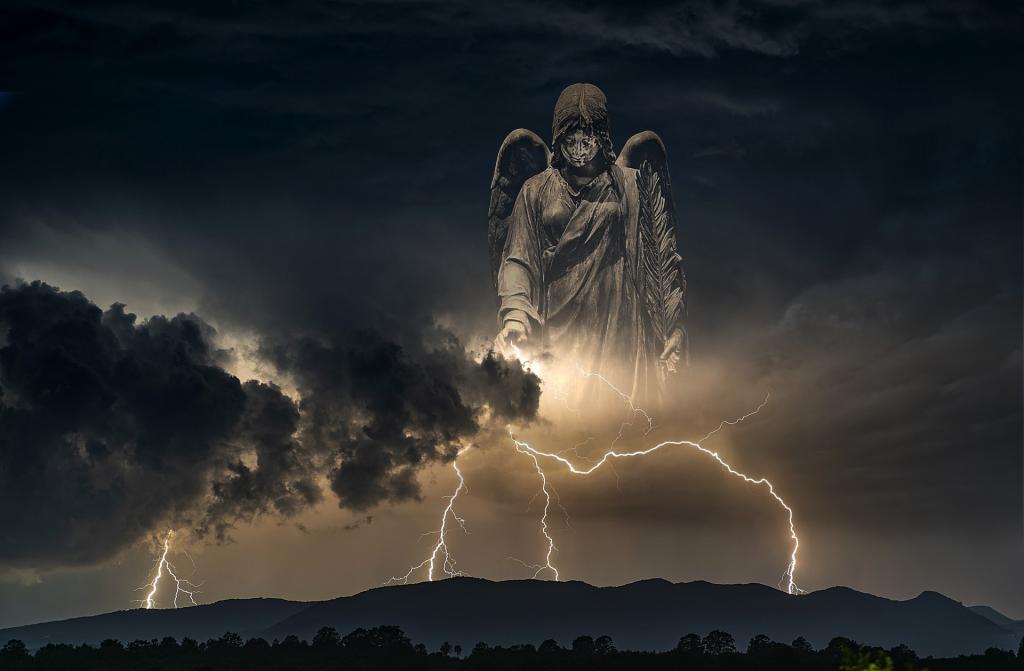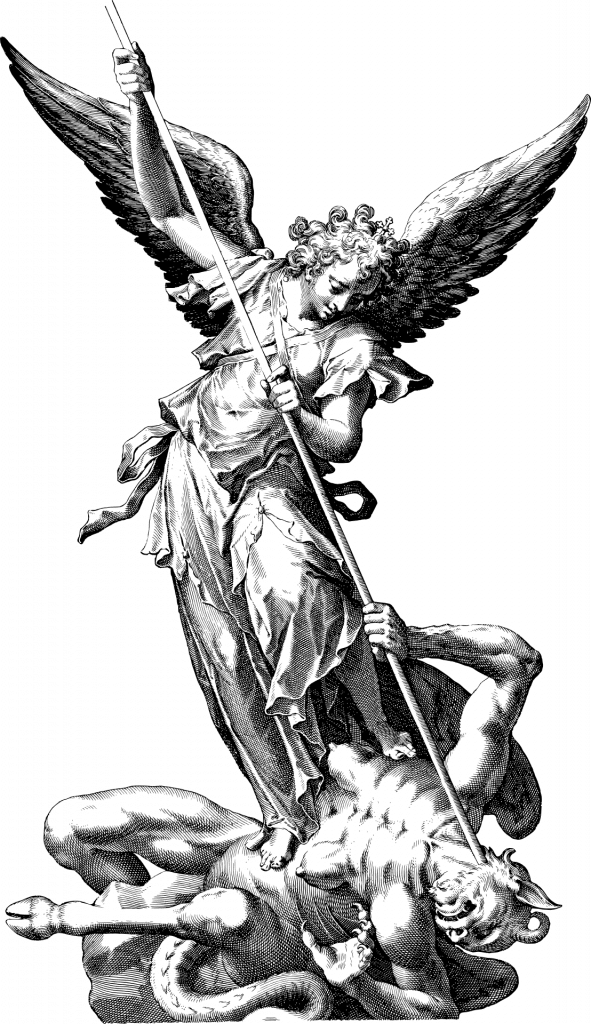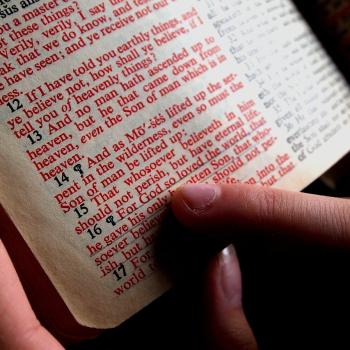In Ephesians, the community in Christ is to engage in a spiritual battle and put on the whole “armor of God” (Eph 6:10–18). For New Testament believers, the devil and his minions are real forces that can attack those who are in Christ. The metaphoric combative gear and weaponry that this letter promotes include truth, righteousness, faith, knowledge of the God’s word, empowerment by God’s Spirit, confidence in salvation, and being grounded in the gospel that restores peace to the cosmos. These virtues and spiritual endowments prepare the believers to fight against and resist spiritual forces (Eph 6:10–18; cf. Rom 13:12; 1 Thess 5:8). Although these forces are demonic in nature, they presumably use humans and institutes to accomplish their ends.[1] 
Standing Firm on the “Evil Day”
Thus, it is necessary for believers, having made all proper virtue preparations, to stand firm and resist malicious spiritual onslaught on “the evil day” (Eph 6:13). This period of time is not purely futurist but already present (cf. Eph 5:16). The “evil day” may suggest a special occasion of demonic visitation that would seek to undermine believers through severe temptations (cf. Luke 4:1, 13).
During such visitations, believers must watch and persevere in prayer (Eph 6:18; cf. Col 4:2; 1 Thess 5:6–8, 17; 2 Tim 4:5), similar to Jesus’s example of watching and praying at the Garden of Gethsemane. Christ’s words to his disciples are relevant here: “Continue to watch and pray that you come not into temptation” (Mark 14:37–38; cf. Matt 26:40–41).
Standing against the Devil’s “Schemes”
The “schemes” of the devil (Eph. 6:11) are not specified, but ἡ μεθοδεία (hȇ methodia) is used also in Eph. 4:14 to denote deceptive scheming caused by humans. It is quite possible for demonic powers to influence false teachers and instigate church divisions (2 Cor 2:11; 11:3, 13–15; 2 Thess 2:9–12; 1 Tim 4:1; 5:15; 2 Tim 2:26; cf. 1 John 4:1–6).
It would not be difficult for us to imagine Satan exploiting the residents in Ephesus and neighboring cities to advance the non-Christian inhabitants’ views of magic, national pride, ethnic prejudice, and religious and political ideologies. Such exploitation takes place in an effort to confuse, discourage, divide, or destroy the faith of church members. This is no less true in our own age.
Yet Satan thwarts the Pauline mission in other ways also, including tempting and persecuting the believers (1 Thess 2:18; 3:5; 1 Cor 7:5; 2 Cor 12:7; Rom 16:20; 1 Tim 3:6–7; Eph 4:26–27). The spiritual battle the church must fight, then, includes an entourage of various schemes the Enemy might throw their way, and ours.
The believers are to “stand” against the devil (Eph 6:11, 13–14; cf. 1 Cor 16:13; 2 Cor 1:24; Phil 4:1; 1 Thess 3:8; 2 Thess 2:15). This means to take firm footage and not retreat, fall down, or otherwise be shaken by his attacks. In Paul’s letters the opposite of standing is falling, which is to commit apostasy (cf. Rom 14:4; 1 Cor 10:12; cf. Rom 11:20–22; 1 Cor 15:1–2; Gal 5:1–4).
Even though our author in Ephesians does not mention potentially negative outcomes, we could surmise that in virtually any war, there will be casualties and defectors. We can rightly assume that a prominent goal of the devil is to draw believers into spiritual bondage and make them subject to his kingdom of darkness, once again (cf. Eph 2:2).
Authorities, Powers, and Rulers
Ephesians 6 elaborates on fighting the devil by using imagery associated with a Roman foot soldier. Our struggle “is not against flesh and blood, but against the rulers (archas), and the authorities (exousias), against the powers (kosmokratoras) of this dark world and against the spiritual forces of evil (pneumatika tês ponêrias) in the heavenly realms” (Eph 6:12). There appear to be several kinds of wicked spiritual powers, although there may be some overlap between them (1 Cor 15:24; Eph. 1:21; 6:10–12; compare 2 Maccabees 3:24; 1 Enoch 61.10; 2 Enoch 20–22; Testament of Levi 3).[2]
The rulers, principalities (archai): Biblical literature sometimes views these “rulers” as something more than mere human rulers. Their high status is evident. Paul categorizes them as potential threats, but they cannot separate the saints (Christians) from the love of Christ (Rom 8:38; compare Col 2:10). These forces are heavenly beings who war against believers (Eph 3:10; 6:12; Col 2:15).
The powers (exousia): Closely related to the rulers/principalities are the “powers.” The term is used for worldly powers (Rom 13:1–3), and in some passages it takes on a spiritual dimension in opposition to Christ’s kingdom (1 Cor 15:24; Eph 1:21; 3:10; 6:12; Col 1:16; 2:15; compare Testament of Levi 3.8; 2 Enoch 20.1).
The kosmokratoras refer to rulers of this world (similar to 2 Cor 4:4, though it is not clear that spiritual entities are meant by the term).
Other Spirits
Another closely related Greek term that sometimes refers to spiritual powers is dynameis (Rom 8:38; Eph 1:21; compare Dan 8:10 LXX; 1 Enoch 61.10). 
We should also mention the “elemental spirits” (stoicheia), which appear elsewhere in Paul. In ancient literature these spirits are associated with the star gods and the signs of the zodiac. In Hebrews 5:12, however, they seem to be nothing more than basic principles of religious belief. In 2 Peter 3:10‑12 they seem to represent the basic material elements of the universe, such as fire, water, earth and air. Paul uses ta stoicheia in reference to religious rules that Christians no longer follow (Gal 4:3, 9; Col 2:8, 20).
The Galatians and Colossians may have believed that spirits influenced the teaching of these rules, or they controlled the stars. The Galatians had once served false gods (Gal 4:8‑11), and the Colossians were being tempted to religious legalism somehow involving “the worship of angels” (Col 2:18). Some people apparently believed the stoicheia controlled the fate of humans, and a person might placate these influences through ascetic practices (Col 2:16‑23). Since Paul claims that Christ defeated the “principalities and powers” on the cross, he assures the Colossians that they should no longer be enslaved to their old religious practices, including the fear of the elemental spirits (Col 2:13‑15). It is not clear, however, whether Paul himself believes that these are real demonic spirits.
Other possible demonic powers are found in the lists that are joined with the “principalities and powers” (Col 1:16; Eph 1:21). These particular manifestations of power include dominions (kyriotêtes) and thrones (thronoi). Their precise nature and activities are hard to identify, and they may be the names for impersonal forces or ideas, not necessarily demonic.
In the Old Testament, we read about the princes (sarîm). The Hebrew word sarîm refers to the “prince,” and here Paul uses it of the kingdom of Persia and the “prince” of Greece, who are spiritual rulers (Dan 10:13, 20‑21). They have great power because they seem to watch over entire nations. The prince of Persia fought Michael the archangel but lost. It is possible that the term “rulers of this age” (archontes) is Paul’s New Testament equivalent for these beings. If so, these “rulers” influenced human authorities to put Christ to death (1 Cor 2:6, 8). Paul says in the same passage that if these “rulers” had known the positive consequences resulting from Christ’s death, they never would have crucified him.
In 2 Peter 2:4 and Jude 6 the Bible refers to a set of angels who are now bound by chains in darkness because of their sin. Although their sin is not specified, it is evident that these passages refer to the “sons of God” who cohabited with the women of the earth in Genesis 6. These angels are known as the “Watchers” in Jewish tradition (e.g., 1 Enoch).
Demons
And of course, there is the simple term, demon (daimonion). Scripture refers to demons, unclean or evil spirits, far more than many of the other classifications for wicked forces (for example, Matt 7:22; 8:31; 12:24; Mark 1:34; Luke 8:30; 1 Cor 10:20-22; James 2:19). These are the spirits that are portrayed as attacking or possessing humans.
The various demons that work against the kingdom of God are limited in power. The power of Christ far exceeds that of the forces of darkness (Eph 1:21; Col 2:9‑10). Christ is supreme over all the forces of darkness because he created all spiritual powers, including the ones that later went astray (Col 1:16). He defeated them through his death and resurrection (Col 2:15; Mt 28:18; Phil 2:10‑11), and he will completely subdue them at the Second Coming (1 Cor 15:24‑25).
The love of Christ is so powerful that “neither height nor depth” can separate believers from him (Rom 8:39). Daniel Reid notes that this passage in Romans 8:38-39 “may refer to the zenith and nadir of the heavenly bodies and thus encompass[es] the full sweep of celestial powers (compare 1 En. 18.3, 11).”[3]]
***
Believers must take our stand against the devil (cf. James 4:7). Discernment, wisdom, and common sense go a long way in this spiritual warfare; the devil seldom shows his true colors in any attack. As Andrew Lincoln claims, “The devil does not always attack through obvious head‑on assaults but employs cunning and wily stratagems designed to catch believers unawares.”[4] Our strength, however, does not rest in ourselves, but in God’s mighty power (Eph 6:10).
Notes
[1] On the demonic nature of the forces, see Clinton Arnold, Ephesians: Power and Magic. On social structures/institutes and the powers, see Walter Wink, Naming the Powers.
[2] For this section I am indebted to Daniel G. Reid, “Principalities and Powers” in Dictionary of Paul and his Letters, 746‑52.
[3] Reid, “Principalities and Powers,” 748.
[4] Andrew T. Lincoln, Ephesians, Word Biblical Commentary (Dallas: Word Books, 1990), 443.
*For more on this topic, see B. J. Oropeza, Jews, Gentiles, and the Opponents of Paul (Cascade, 2012) ch. 7; also see Oropeza, 99 Answers to Questions on Angels, Demons, and Spiritual Warfare, questions #35 and #67.
Image 1: Thunderstorm storm via pixabay.com; image 2: Archangel Michael kill Satan via pixabay.com













